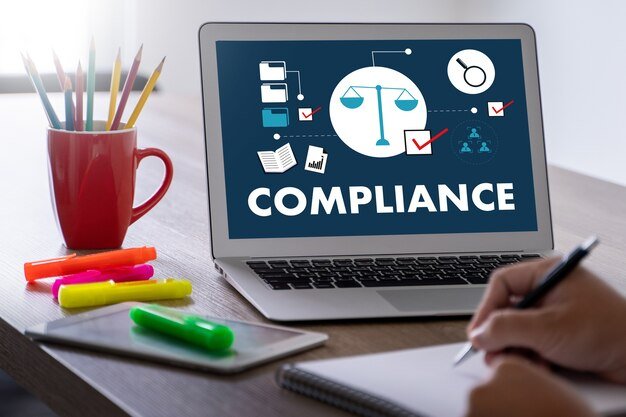overview
Compliance in Portuguese, is a term that frequently appears in the business world, especially within regulated industries like finance, healthcare, and manufacturing. It refers to the adherence to laws, regulations, standards, and ethical practices that govern a specific industry or business. Companies prioritize compliance to avoid legal penalties, protect their reputation, and ensure smooth operations. This article will dive into the concept of compliance, its importance, key components, and best practices for maintaining it.
What Is Compliance?
Compliance involves following a set of established rules, policies, and laws relevant to a particular business or sector. It encompasses internal policies set by an organization as well as external regulations from government agencies or industry bodies. The goal of compliance is to ensure that the company and its employees operate within the legal framework while upholding ethical standards.
The Importance of Compliance
Avoiding Legal Penalties
One of the primary reasons businesses focus on compliance is to avoid fines, sanctions, or other legal consequences. Regulatory agencies often have strict enforcement policies, and violations can result in hefty penalties that affect a company’s financial health.
Protecting the Company’s Reputation
Compliance is closely tied to a company’s reputation. When businesses adhere to industry regulations and ethical standards, they build trust with customers, stakeholders, and the public. On the other hand, compliance breaches can damage a company’s credibility and result in loss of business.
Ensuring Operational Efficiency
Compliance also plays a crucial role in operational efficiency. By following the rules, companies can reduce the risk of disruptions caused by regulatory investigations or legal actions. This enables businesses to focus on growth and strategic objectives without being sidetracked by compliance issues.
Key Areas of Compliance
Legal Compliance
Legal compliance refers to adhering to laws and regulations that apply to a business. This can include labor laws, tax regulations, environmental standards, and industry-specific requirements. Companies need to stay updated on legal changes to avoid potential non-compliance.
Financial Compliance
In the finance sector, compliance often involves following rules set by financial authorities such as the Securities and Exchange Commission (SEC) in the United States. These rules ensure that companies engage in ethical financial practices and provide accurate financial reporting.
Health and Safety Compliance
For industries such as manufacturing, construction, or healthcare, health and safety compliance is essential. It involves following guidelines that ensure the safety of employees, customers, and the general public.
Environmental Compliance
Organizations also have a responsibility to adhere to environmental regulations that reduce their impact on the planet. This could involve managing waste, reducing emissions, or using sustainable materials.
Data Privacy and Security Compliance
With the rise of digital technology, data privacy and security compliance have become critical. Regulations like the General Data Protection Regulation (GDPR) require companies to protect personal data and ensure data handling practices are secure.
Best Practices for Achieving Compliance
1. Regular Audits and Risk Assessments
Conducting regular audits helps companies identify potential compliance risks. Risk assessments can also highlight areas where the company needs to improve to meet regulatory standards.
2. Employee Training and Awareness Programs
Employees should be aware of compliance requirements and the consequences of non-compliance. Regular training programs can keep staff updated on new regulations and reinforce the importance of ethical conduct.
3. Implementing a Compliance Management System
A compliance management system is a tool or software that helps monitor, manage, and document compliance-related activities. It can streamline processes such as audits, training, and policy updates.
4. Establishing a Compliance Team
Having a dedicated team to oversee compliance ensures that there is a systematic approach to monitoring and enforcing regulations. The compliance team can work closely with other departments to ensure all areas of the business meet the required standards.
5. Staying Informed About Regulatory Changes
Regulations are constantly evolving. Staying updated on changes can help a business remain compliant and avoid potential legal issues. This may involve subscribing to industry newsletters, attending seminars, or consulting with legal experts.
Challenges in Maintaining Compliance
Complex Regulations
Some industries face complex regulatory environments with numerous requirements that are difficult to manage. Companies may struggle to keep up with all the regulations, especially if they operate in multiple regions with different legal standards.
High Costs
Compliance can be costly, especially for small businesses. Legal fees, software, training programs, and audit costs can add up, making it challenging to maintain full compliance.
Rapidly Changing Laws
Laws and regulations can change quickly, which means that what is compliant today might not be tomorrow. Companies need to adapt rapidly to stay compliant, which can be resource-intensive.
Benefits of Compliance
- Reduces Legal Risks: Helps avoid fines and legal issues.
- Builds Customer Trust: Shows commitment to ethical practices.
- Enhances Business Reputation: Strengthens the company’s standing in the industry.
- Improves Operational Efficiency: Avoids disruptions from regulatory investigations.
Conclusion
Compliance is not just about following rules; it is about creating a culture of responsibility and ethical behavior. Compliance Companies that prioritize compliance protect themselves from legal penalties, enhance their reputation, and ensure smooth operations. While maintaining compliance can be challenging due to complex regulations and high costs, the benefits far outweigh the risks. Investing in a robust compliance strategy is essential for long-term business success.
FAQs
1. What is the difference between legal compliance and regulatory compliance?
Legal compliance refers to following laws set by governments, while regulatory compliance pertains to rules set by specific industry regulators.
2. Why is compliance important in the finance industry?
Compliance ensures ethical financial practices, protects investors, and maintains the integrity of financial markets.
3. How often should a company conduct compliance audits?
The frequency of compliance audits depends on the industry, but many companies conduct them annually or biannually to stay updated on regulatory requirements.
4. What are some common compliance risks for businesses?
Common risks include data breaches, health and safety violations, financial misreporting, and environmental law breaches.
5. Can small businesses afford compliance management?
While compliance can be costly, there are scalable solutions like cloud-based compliance management software that can help small businesses manage compliance more affordably.





